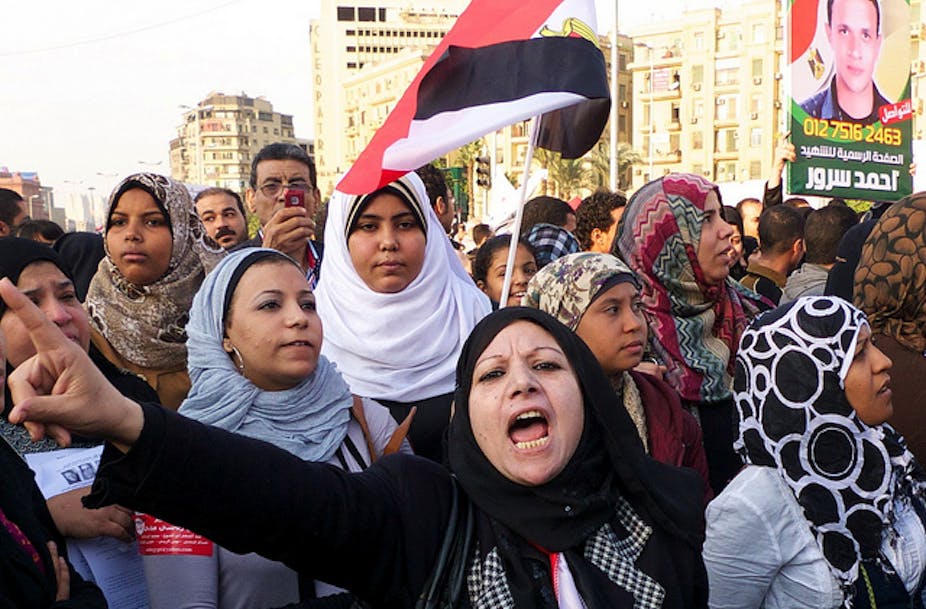Violence against female protesters was a terrifying hallmark of the unrest that led to the fall of the Morsi government. Local NGOs documented more than 100 reports of sexual violence, including rape, between June 30 and July 3, the day of the “coup-volution” which ousted Morsi.
Both sides blamed each other: Morsi’s supporters said the attacks were the work of a “group of thugs” in Tahrir Square - the presidential advisor on foreign relations Essam Al-Haddad said: “These criminal acts do not appear to be politically motivated or controlled.”
This was denied by opponents of the Morsi regime who criticised a “culture of impunity” in Egypt as regards sexual violence against women.
The fact is that since the fall of Hosni Mubarak in January 2011, there has been a marked increase in sexual violence against women in Egypt. This grew during Morsi’s period in power and has continued since his removal as clashes between pro- and anti-Morsi protesters and the military have continued. Not only has the increase in sexual violence against women caused concern at an international level, but so have the attacks against foreign women working in the country.
During Morsi’s administration, in February last year, Amnesty International called for the government to investigate this increase violence and end what it called Egypt’s “culture of impunity” and gender-based discrimination.
“Impartial, thorough investigations are vital to determine whether these mob attacks are co-ordinated by state or organised non-state actors and ensure perpetrators are brought to justice,” Amnesty International’s Hassiba Hadj Sahraoui said.
The beginning of 2013 also brought about discussions for a UN Declaration on the status of women, which Morsi was quick to reject, arguing that providing women with certain rights would be bad for society.
Links have been established between both the Mubarak and Morsi regimes with regard to sexual violence against women. Under Mubarak sexual violence was used on several occasions, the most recognised instance is known as “Black Wednesday” in 2005 when female journalists covering protests against “pro-regime constitutional amendments” were targeted.
During Morsi’s short-lived administration it became evident that a more conservative style of Islam was to be implemented. This conservatism was made evident by the patriarchal language adopted by the Brotherhood with regard to women’s rights. It has been suggested that the increase in violent attacks against women was related to the regime’s intention to re-establish its authoritarian rule over the public realm.
Egyptian women are not the only ones being targeted. A number of female foreign journalists have been assaulted as they report on events. On July 2, a 22-year-old Dutch journalist was reportedto have been gang raped in Tahrir Square while reporting on the protests, while other incidents of this nature have been reported since the beginning of the social uprising in 2011.
Most famously, CBS reporter Lara Logan reported being beaten and sexually assaulted by a crowd of men in February 2011 while reporting the protests that evetually toppled Mubarak. “I was in no doubt in my mind that I was in the process of dying,” she recalled of the attack w hich only ended when a group of women protesters came to her aid.
Motivations for such attacks remain questionable. The suggestion has been mooted in among conservative sources that this is a deliberate attempt to target women to relegate them away from politics into the private sphere.
It remains unclear as to whether those involved in the attacks affiliate themselves with the political parties which have been removed from power, however, political motivation should continue to be considered as a prominent aspect of this violence. But a greater understanding about why women are being targeted needs to be ascertained so as to enable possible counter measures.
For now, these attacks could be viewed as a means by which those seeking a more conservative approach to politics try to remove women from the public sphere and, more specifically, the protests which have shaken the country.

